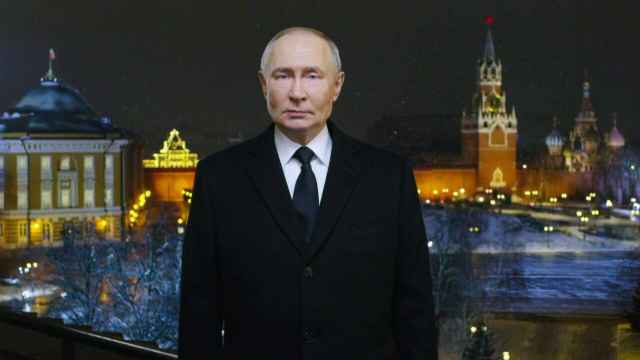Russia, seeking to boost remote oil and metal rich territories, is looking at new laws to loosen state control of big fields and ensure explorers can keep their finds, its natural resources and environment minister said Friday.
Russia's oil industry, the world's largest at 10.4 million barrels per day of production in 2012, is increasing reserves rapidly without much exploration, but more effort will be needed to keep replacing reserves at a rapid pace.
The oil industry has called for incentives such as those in place in rival producers, like Norway, to ensure reserves are in place to prevent a future decline.
Miners, too, have called for incentives for new exploration in Russia's remote provinces to boost gold reserves.
Among the biggest obstacles has been the uncertain returns for explorers. If finds are big enough, they can be deemed strategic and must be handed over to the state.
Sergei Donskoi, Natural Resources and Environment Minister, said the government was ready to review a draft law which would ensure that large discoveries could be developed by their finders.
"That is, the state would give guarantees to specific investors that a particular tract would not be seized," Donskoi told a meeting with a business lobby where proposals on exploration incentives were discussed.
The government has already promised to raise the bar on strategic rules for gold deposits, classifying them as federally significant if they contain 250,000 tons of gold instead of 50,000 tons previously.
"We also intend to work on lifting quantitative restrictions on oil, gas, copper and gold for distant regions," Donskoi said. "Where there is no infrastructure, ... where there has been no exploration or no exploration for a long time and it must be stepped up, we will not deem fields to be significant at the federal level."
Donskoi said the government could consider a direct role like the one it played in the Soviet era, when state-sponsored expeditions discovered the last century's Russian supergiants, but a public-private partnership model would be more efficient.
Nikolai Levitsky, CEO of Geotech Holding, a land seismic firm that is part of London listed IGSS, proposed a rebate on mineral extraction tax to be spent on exploration.
A Message from The Moscow Times:
Dear readers,
We are facing unprecedented challenges. Russia's Prosecutor General's Office has designated The Moscow Times as an "undesirable" organization, criminalizing our work and putting our staff at risk of prosecution. This follows our earlier unjust labeling as a "foreign agent."
These actions are direct attempts to silence independent journalism in Russia. The authorities claim our work "discredits the decisions of the Russian leadership." We see things differently: we strive to provide accurate, unbiased reporting on Russia.
We, the journalists of The Moscow Times, refuse to be silenced. But to continue our work, we need your help.
Your support, no matter how small, makes a world of difference. If you can, please support us monthly starting from just $2. It's quick to set up, and every contribution makes a significant impact.
By supporting The Moscow Times, you're defending open, independent journalism in the face of repression. Thank you for standing with us.
Remind me later.





